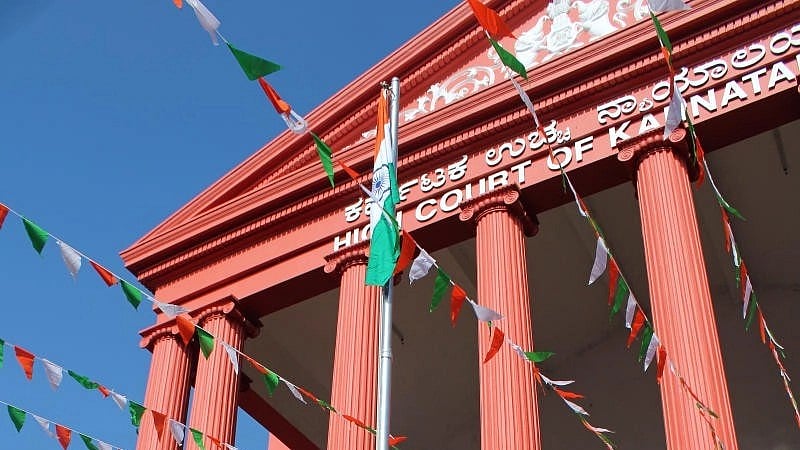
Karnataka High Court.
Credit: DH Photo
The High Court of Karnataka on Friday reserved its order on the interlocutory application (IA), filed by Prajwal Revanna, seeking a stay on the order setting aside his election from Hassan constituency in the 2019 Lok Sabha election.
Justice K Natarajan indicated that he would pronounce the orders either on Monday or Tuesday.
On September 1, the court had allowed the election petitions in part filed by defeated BJP candidate A Manju and G Devaraje Gowda, former KPCC general secretary.
The court had set aside Prajwal’s election on the grounds of indulging in corrupt practices.
It also rejected the prayer in both petitions to declare Manju as a returned candidate in view of the findings that he himself was involved in corrupt practices.
At the hearing on Friday, the counsel, appearing Prajwal, told the operation of the September 1 order needs to be stayed by the court to enable him to exercise the statutory appeal remedy available under section 116(2) of the Representation of Peoples Act.
The counsel for Gowda opposed the application contending that the judge, who had given the verdict, could not tinker with the same in any manner.
It was argued that the prayer to stay the operation of the order should have been made on the day the verdict was pronounced. On the other hand, the counsel for Manju, who then defeated the BJP candidate, did not oppose the IA, he said.
At this juncture, Justice Natarajan sought to know whether the provisions of the Representation of Peoples Act contain a clause to the effect of making a judge ‘functus officio’ after the delivery of the judgment.
Under section 116(2) of the Representation of People’s Act, 30 days’ time is provided to a party who has suffered an adverse order at the hands of the high court in an election petition under sections 98 and 99 of the Representation of People’s Act.
